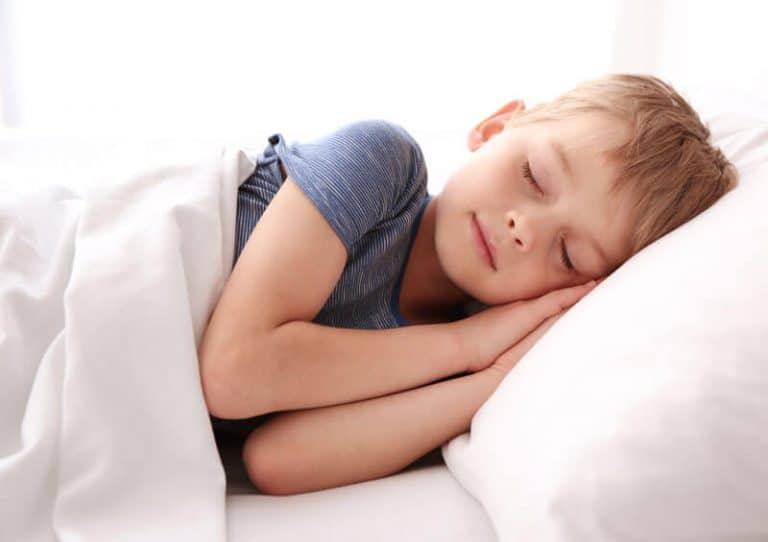Raising a child with attention deficit hyperactivity disorder (ADHD) is a daily challenge for parents. It can turn your world upside down as you need to adapt how you interact with your child to help them deal with the world.
According to Melbourne’s Royal Children’s Hospital, one in 20 Australian children have ADHD and it is more common in boys than in girls. But ADHD manifests differently from child to child. The symptoms and the severity vary so parents need to take an approach that suits their child.
Signs and symptoms of ADHD
It can be difficult to know whether a child has ADHD or is simply being a child. Kids often interrupt conversations, have trouble staying still and are off with the fairies. It is when their behaviour is so disruptive and severe that it makes learning difficult and interferes with relationships, they may have ADHD.
Children with ADHD can be inattentive, hyperactive and impulsive. Here are some of the symptoms:
- Inability to pay attention to details.
- Making careless mistakes when studying.
- Not being able to sit still in class or when required.
- Always on the go as if wound up and run by a motor that only winds down when the battery runs out.
- Unable to focus on conversations when reading or in class.
- Easily distracted or spends much time daydreaming.
- Running and climbing things in inappropriate situations.
- Never stops talking.
- Cannot follow instructions.
- Starts things without finishing anything.
- Cannot play quietly.
- Tends to avoid things that takes continuous mental effort.
- Always losing things.
- Does not appear to listen when spoken to.
- Has trouble organising themselves, their time and belongings.
- Is forgetful about almost everything most days.
- Continually fidgets.
- Does not like to wait their turn.
- Interrupts conversations, activities and games.
- Takes other people’s things to use without asking permission.
- Blurts out answers to questions without knowing the full question.
If you have concerns about your child’s behaviour, take them to see your GP.
But there is a lot you can do for your child when you have a diagnosis of ADHD. A child with ADHD has a functional difference in their brain and it is often genetic though it is not known what causes ADHD. This does not mean your child cannot learn right from wrong, though you will need to find other ways to help them to develop positive behaviours.
Here are 15 tips to help your child flourish.

Create daily structure
It is important to create structure and routines in your child’s daily life. And make sure you keep it the same every day. Create routines for playtime, meals, completing homework and for going to bed. Something as simple as choosing the clothes to wear the next day before going to bed can help provide daily structure.
Daily structure is good for limiting distractions and helps calm children with ADHD when they know what to expect. It also introduces responsibility into your child’s life.
Offer praise
Whenever your child displays good behaviour, praise them. This helps them learn what is acceptable and encourages them to repeat these behaviours. When you have a child with ADHD you can often be saying no or don’t do that, so it is extremely important to praise them when they do something good.
Encourage physical activity
Encourage your child to burn off excess energy through physical activity. It helps to:
- improve sleep habits
- improve focus and the ability to concentrate
- lowers the risk of developing anxiety and depression
- stimulates the brain
- decreases impulsive behaviour.
You can encourage physical activity by teaching your child to ride a bike, play with interactive toys such as balls or a skipping rope, or enrolling them into a sport such as netball or football.
Be a good role model for your child. Take them walking in a park, hiking and to the beach for the day. Leading by example helps a child with ADHD to develop good habits that will be good for them for the rest of their lives. It also helps them get rid of any excess energy.
Healthy sleeping habits
A good night’s sleep is a positive for children with ADHD. So, it is important you set your child up for good quality sleep every night with regular bedtime hours to help regulate their energy levels during the day. A good night’s sleep also improves your child’s mood and lowers their stress levels.

Split large tasks into achievable goals
Large tasks can be daunting for a child with ADHD so break them down into achievable goals. For example, when you ask your child to clean their room break it down into making the bed, putting all toys away, putting clean clothes away and the dirty ones into the laundry for washing.
This way it simplifies the task and helps them to succeed rather than worrying about failing.
Minimise distractions
Children with ADHD can be easily distracted so it is a good idea to minimise these when they have tasks to complete. Turn the television off or down and have toys put away so they can concentrate on what they need to achieve.
Encourage thinking out loud
A child with ADHD can have little self-control which means they can act or speak without thinking things through. Have your child stop before they act or speak to express their thoughts out loud and the reasoning behind their thinking. This allows you to understand how your child thinks and helps them consider their thoughts before they act instead of being impulsive.
Wait before speaking or acting
Introduce your child to waiting for a few seconds before acting or speaking. It gives them a few moments to think about what they are about to do is appropriate or not. This can help them in all sorts of social situations and at home. But it will take practice for your child to stop and think for a few seconds before acting.
Explain your reasons
Explain your reasons for asking a child with ADHD to do something rather than simply telling them what to do. Keep it simple and positive. And answer any questions your child asks.

Ask for support
It can be stressful living with a child with ADHD especially if you are working and trying to keep up with all your other obligations. Ask for support from friends, family or an ADHD support group when you start feeling overwhelmed. Becoming overly stressed will make supporting your child even more difficult and can affect your overall health and wellbeing.
Use positive language
Use positive language to help build your child’s confidence. Negative language can make a child with ADHD feel they can never do anything right and that you do not like them. It can hurt them and escalate their disruptive behaviour.
While you cannot be positive all the time, have someone you can talk to when it all gets too much that you can express your concerns to. This can be family, a friend, your partner or a therapist that can help you through those times where being positive becomes difficult.
Take time out
Focusing all your time supporting a child with ADHD can be exhausting. Make the effort to take time out so you feel refreshed. Get a babysitter so you can spend some time with your partner or meet up with a friend for coffee. This is really important and it will lower your stress levels so you can better support your child.

Do not lose your temper
Avoid losing your temper. Easier said than done sometimes when coping with a child with ADHD. But staying calm will help you communicate better and think more clearly about how to solve problems. Try the following:
- practise mindfulness
- download my free mindfulness audio to meditate to regularly
- take a yoga class
- watch the sun set at the beach
- take a walk in a park or in nature
- cut down on your alcohol and coffee consumption.
Any child can misbehave
It is wise to understand that any child can misbehave at times and that your child’s behaviour may not always be the result of their ADHD. You need to understand the difference between what normal behaviour for a child is growing up and what behaviours are art of their ADHD and need managing.
Do not be hard on yourself
It is all too easy to look around and think other parents are coping better than you. But if you talk to parents of other children with ADHD you will find they feel like you do. Rather than being hard on yourself, feel pride in what your child accomplishes and the challenges they overcome.

Get help
Having a child with ADHD can be stressful and tiring, and disruptive for the family. And you may even feel like a failure. But there is help if you need it. If these tips are not helping, contact us.
We can help you deal with the stress that builds up from coping with ADHD in your child and we can work with your child to help improve behaviour. We can work with you in our Spas, over the phone or via Skype. Book in today for my Emotional Empowerment Program. I have an introductory offer for just $79 so you can start taking back control of your life. Invest in your wellbeing today.
Let me help to stop stress in its tracks
My Emotional Empowerment Program has helped thousands of people like you deal with mental health issues so they live happier, less stressed out lives. With my help you can better deal with a child with ADHD so their behaviour no longer has a negative impact on your family and they live full, happy lives. I can help you replace stress with happiness, peace and contentment in weeks not years.

